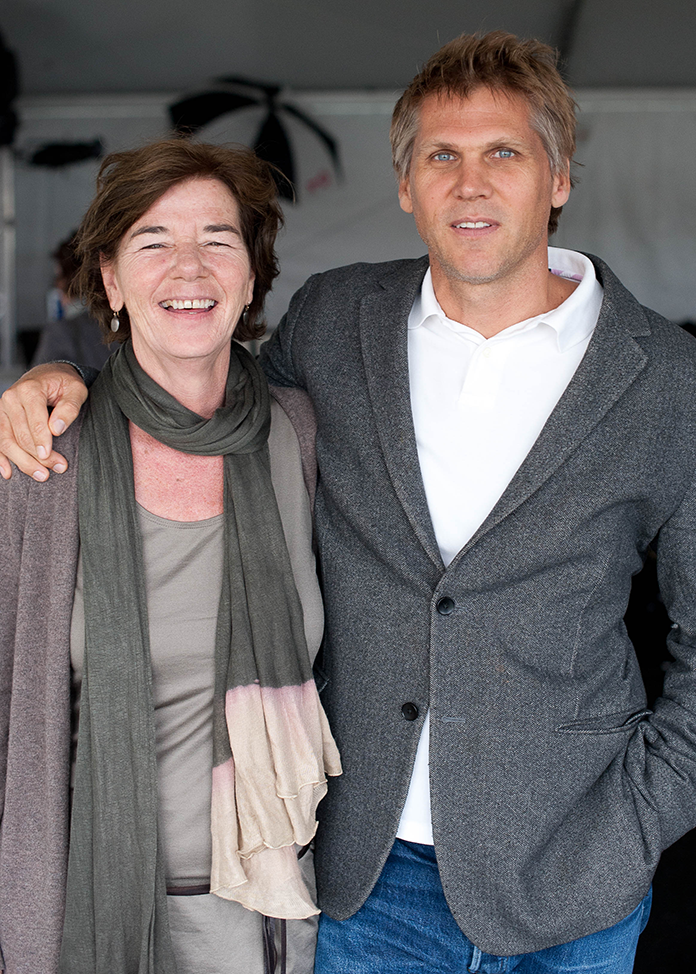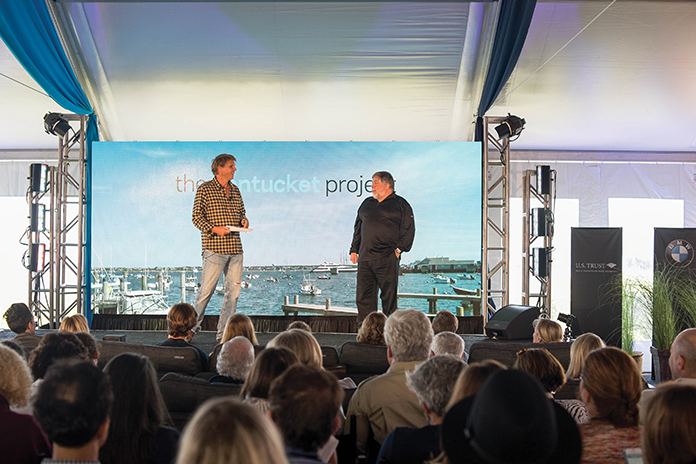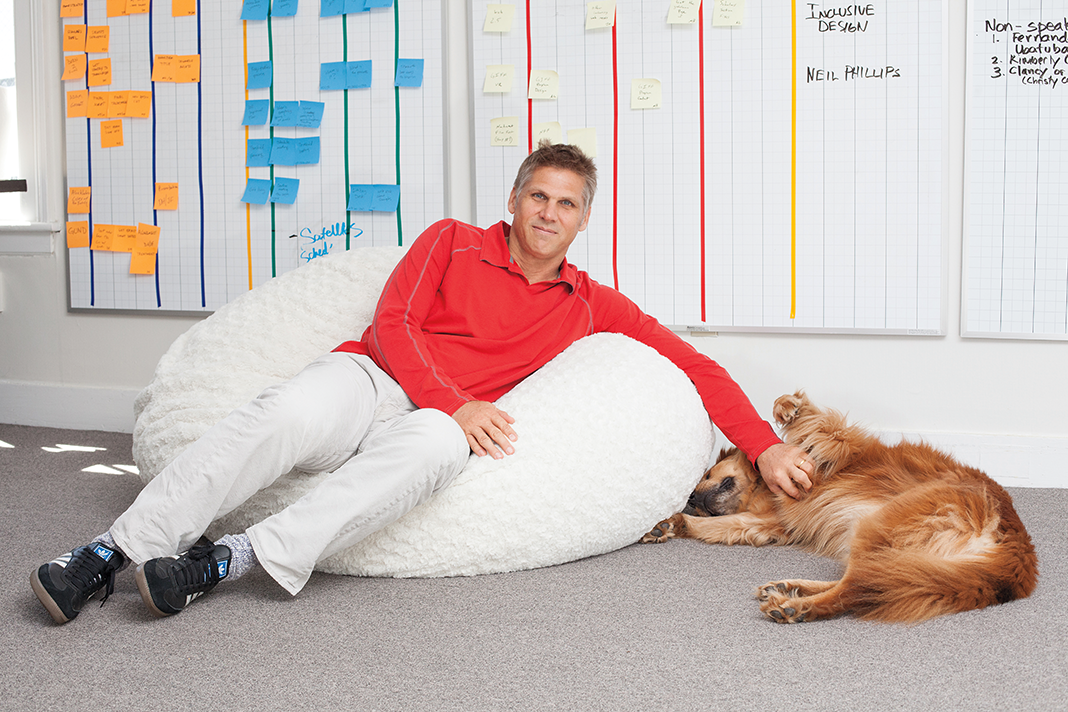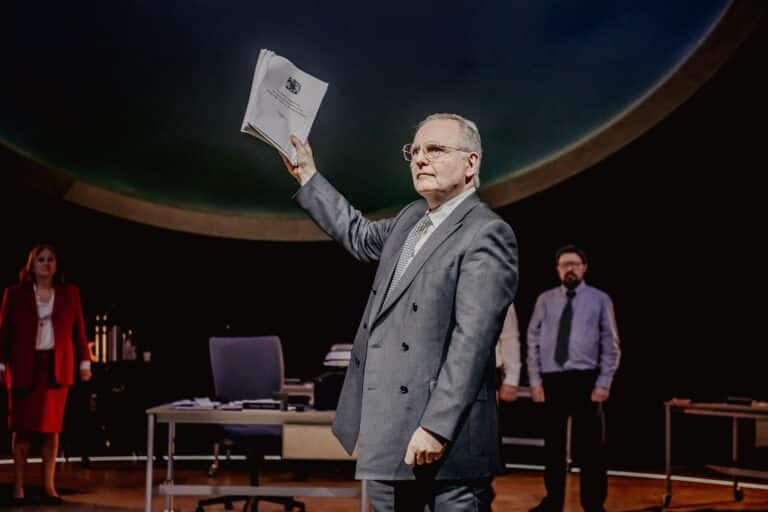Tom Scott considers himself to be a normal guy—a normal guy who wears broken-in chinos and Adidas Samba sneakers, and happens to have co-founded a hugely successful, multimillion-dollar juice company in his 20s. Eight years after launching Nantucket Nectars in 1989, Scott and his partner reportedly sold a major portion of their company to Ocean Spray for $70 million. He was 32 years old.
How Scott did this without any formal business training or even a MBA is impressive. But the way he sees it, the reason why his company really took off boils down to this simple belief: “If I have a real passion for an average thing like a juice, so does everybody else,” Scott says, leaning forward in his chair in his sunlit office. “It’s just that I’m focused on it. If I work hard to get what I want, you’re going to want it, too. I believe it.”

In this way, Scott uses himself as the ultimate litmus test: if he’s interested in something, he’s willing to bet that a lot of other people will be as well. The venture Scott is focused on right now is The Nantucket Project, an organization devoted to storytelling and sharing ideas that spark conversation. Central to this mission is an annual gathering in Nantucket, where speakers across a variety of fields—from arts to finance to education—are invited to “give the talk of their life,” says Scott. The ideas that come out of those discussions are turned into films made by high-profile directors like Doug Liman (whose resume includes The Bourne Identity).
“Getting these films right is something we’ve been doing for about a year,” Scott says. Again, he does a gut check before green lighting anything. “If I don’t love the film, then nobody loves the film. That’s how I know I’m average.” The lineup of past speakers is varied and ambitious, and includes Apple co-founder Steve Wozniak, former U.K. prime minister Tony Blair, economist Larry Summers, theater and film director Julie Taymor and WikiLeaks founder Julian Assange, who appeared in the form of a hologram, beamed in from the Ecuadorian embassy where he’s been staying under political asylum since 2012. Not surprisingly, Assange’s virtual presence generated a flurry of press coverage.
Still, Scott doesn’t consider this The Nantucket Project’s most successful moment yet. Instead, he points to the talk Larry Lessig, a Harvard Law School professor and political activist, gave on campaign finance reform in 2014, which was the inspiration for the six-minute film, Reclaim Democracy, that’s been seen 6 million times (and counting) on various social media platforms. “That’s a manifestation of our work,” says Scott. “That’s what we do.”
The headquarters for TNP, as it’s known, resemble a think tank meets college dorm: The restored Victorian-style house on Mason Street has bean bag chairs and guitars strewn about. There are board games on shelves and lots of open rooms where you can imagine long-form strategy discussions taking place over mugs of coffee (or bottles of beer). In Scott’s office hang pictures of everyone from Bob Dylan to Einstein, and he’s got running clothes stashed in the closet. The vibe is relaxed yet super focused, a visual personification of Scott’s own demeanor.
If anyone can figure out how to take TNP to the next level, it’s Scott, who has the natural curiosity and energy required of startups. After selling Nantucket Nectars, Scott founded the now defunct Plum T.V., a lifestyle television network that aired in tony locales like Aspen, Martha’s Vineyard and the Hamptons. In 2001, Scott, an avid pilot, flew himself halfway around the world in a small plane. He’s also produced films and is the chairman of the Nantucket Film Festival. In 2010, he co-founded TNP with Kate Brosnan, the former executive director of Juice Guys Care, the philanthropic spin-off of Nantucket Nectars.

In many ways, TNP draws inspiration from TED, a video conference and speaker series that began in the ’80s and is especially popular among a younger crowd of followers who consume their media on screens and phones. While TED has an enormous global presence, TNP is not quite there yet, a fact that is not lost on Scott. “We’re trying to build this TED-like place in the world, through films, as opposed to talks,” he explains. Given that it takes place on Nantucket, the annual speaker event is limited to 600 people. Maybe that’s part of the appeal, though. “It’s remote, it’s hard to get to,” Scott says of the locale. “It’s quiet on a relative basis. And it’s on the edge of the world. As an escape or retreat, it’s pretty unique.”
The theme of this year’s event, which takes place September 23 to 25, is “walls,” a subject Scott sees as being interpreted on many different levels. “Walls that we know, the bad kinds, ones we want to tear down, ones we put in their place; walls we love, cherish; walls that honor and then the walls within us that divide us, isolate us, that depress us,” he muses. At press time, the roster of presenters includes bestselling business author Seth Godin, Nicholas Negroponte, co-founder of the MIT Media Lab, and supermodel and philanthropist Christy Turlington Burns, who plans to speak about her experiences with running as a form of therapy. “She’s going out to a Navajo reservation and we’re filming her as she helps women dealing with addiction and domestic violence, and runs with them,” Scott says.
In between his work with TNP, Scott is also enrolled at the Yale Divinity School, where he’s pursuing his masters degree. He views the future of TNP with a certain spirituality as well. “It’s like the idea of yoga sounds really good, the idea of meditation sounds interesting, but the actual practice takes time. And this is a practice,” says Scott, tapping his fingers on his desk. “We have to practice the practice and maybe we’ll get lucky and people will like what we do. That’s the hope. That’s the idea.”
Portrait taken by Sara Luckey at The Nantucket Project headquarters in Greenwich, CT (with the office dog, Yogi).



